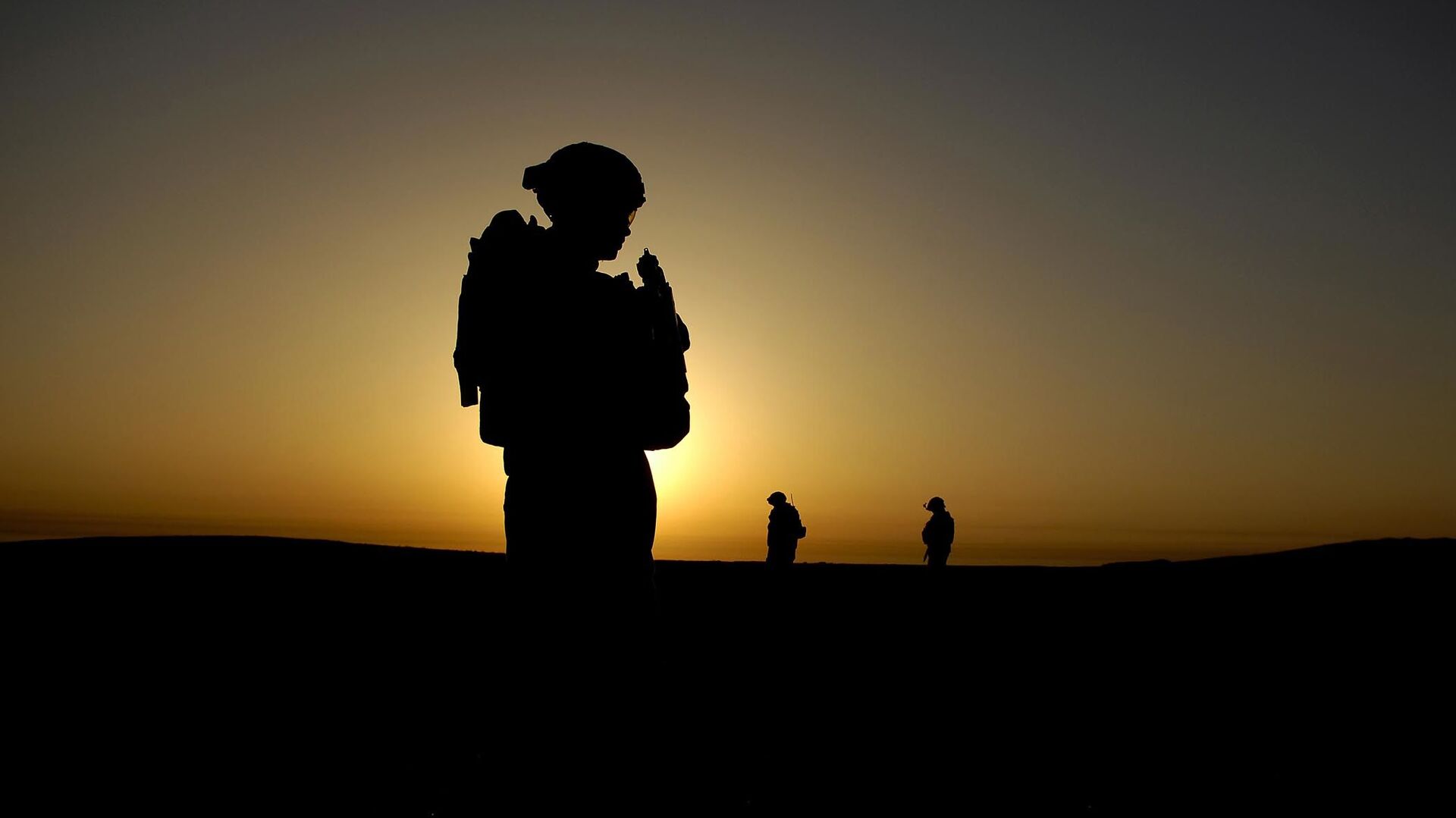https://sputnikglobe.com/20230320/iraqis-suffering-from-disastrous-medical-diseases-caused-by-us-led-invasion-advocate-1108581535.html
Iraqis Suffering From ‘Disastrous Medical Diseases’ Caused by US-Led Invasion: Advocate
Iraqis Suffering From ‘Disastrous Medical Diseases’ Caused by US-Led Invasion: Advocate
Sputnik International
The US-led invasion of Iraq has resulted in a dramatic rise in birth defects in the country, a problem that will remain in Iraq "forever," anti-nuclear advocate Helen Caldicott told Sputnik.
2023-03-20T04:39+0000
2023-03-20T04:39+0000
2023-03-20T04:39+0000
20 years since us invasion of iraq
iraq
us
iraq war
https://cdn1.img.sputnikglobe.com/img/107829/10/1078291040_0:61:2100:1242_1920x0_80_0_0_fda46e7a04dddf955f1f5e29bec833a1.jpg
On March 19, 2003, at 10:16 p.m. EST, President George W. Bush in a televised address from the Oval Office said the US and coalition forces were in the early stages of military operations to disarm Iraq and "free its people," marking the start of an invasion and occupation that led to the deaths of hundreds of thousands of civilians and combatants. She emphasized that the United States had deployed missiles armed with uranium 238, resulting in microscopic particles polluting the air and surrounding soil, "to be spread by the wind for the rest of time." According to Caldicott, the US and British militaries used more than 1,700 tons of depleted uranium in Iraq during the 2003 invasion. She added that in Fallujah, where two massive US military operations took place, 25% of newborns were seriously deformed and the rate of leukemia is 38 times higher, while the childhood cancer rate is 12 times higher than in populations in neighboring Egypt, Jordan and Kuwait. According to Pentagon data, during the war in Iraq, 4,431 soldiers were killed, while about 32,000 were injured. According to the World Health Organization (WHO), between 2003 and 2006 alone, up to 223,000 Iraqis fell victim to the war. International experts estimate that the war in Iraq claimed from 1 to 1.4 million lives of Iraqis.
iraq
Sputnik International
feedback@sputniknews.com
+74956456601
MIA „Rossiya Segodnya“
2023
Sputnik International
feedback@sputniknews.com
+74956456601
MIA „Rossiya Segodnya“
News
en_EN
Sputnik International
feedback@sputniknews.com
+74956456601
MIA „Rossiya Segodnya“
Sputnik International
feedback@sputniknews.com
+74956456601
MIA „Rossiya Segodnya“
us-led invasion of iraq, us iraq war, us iraq invasion, us iraq 2003
us-led invasion of iraq, us iraq war, us iraq invasion, us iraq 2003
Iraqis Suffering From ‘Disastrous Medical Diseases’ Caused by US-Led Invasion: Advocate
WASHINGTON (Sputnik) - The US-led invasion of Iraq has resulted in a dramatic rise in birth defects in the country, a problem that will remain in Iraq "forever," anti-nuclear advocate Helen Caldicott told Sputnik.
On March 19, 2003, at 10:16 p.m. EST, President
George W. Bush in a televised address from the Oval Office said the US and coalition forces were in the early stages of military operations to disarm Iraq and "free its people," marking the start of an invasion and occupation that led to the deaths of hundreds of thousands of civilians and combatants.
"The ‘shock and awe war’ crime initiated by George W Bush and his co-freres was both a nuclear and conventional war, initiating disastrous medical diseases and congenital abnormalities which will haunt the people of Iraq forever," Caldicott said.
She emphasized that the United States had deployed missiles armed with uranium 238, resulting in microscopic particles polluting the air and surrounding soil, "to be spread by the wind for the rest of time."
According to Caldicott, the US and British militaries used more than 1,700 tons of depleted uranium in Iraq during the 2003 invasion.
"Iraqi doctors in Fallujah since 2005 have been overwhelmed by the number of babies with serious birth defects, ranging from a girl born with two heads to paralysis of the lower limbs and far more cancers than they documented before the battle for Fallujah between US troops and the Iraqi people," Caldicott told Sputnik.
She added that in Fallujah, where two massive
US military operations took place, 25% of newborns were seriously deformed and the rate of leukemia is 38 times higher, while the childhood cancer rate is 12 times higher than in populations in neighboring Egypt, Jordan and Kuwait.
"Despite the fact that the US war with Iraq came to a close on December 18, 2011, families in numerous Iraqi cities are now living with a dramatic rise in birth defects and cancer from radioactive weapons that were detonated near homes, schools, and playgrounds during the nearly seven-year conflict and these diseases will be perpetuated for the rest of time," Caldicott said.
According to Pentagon data, during the war in Iraq, 4,431 soldiers were killed, while about 32,000 were injured. According to the World Health Organization (WHO), between 2003 and 2006 alone, up to 223,000 Iraqis fell victim to the war. International experts estimate that the war in Iraq claimed from 1 to 1.4 million lives of Iraqis.


